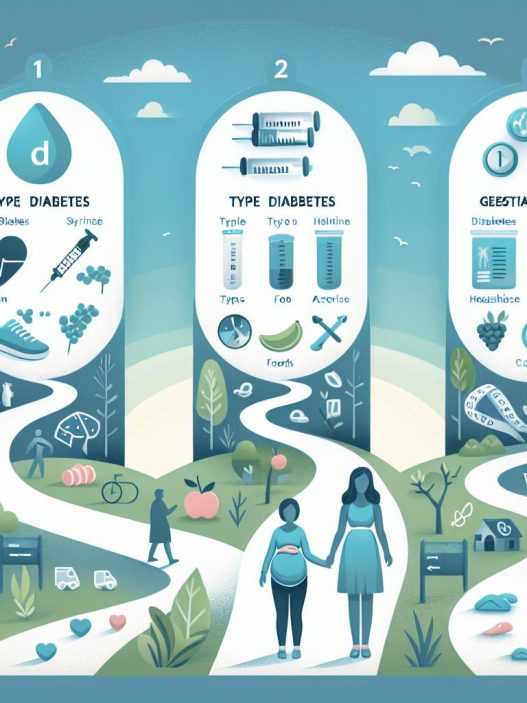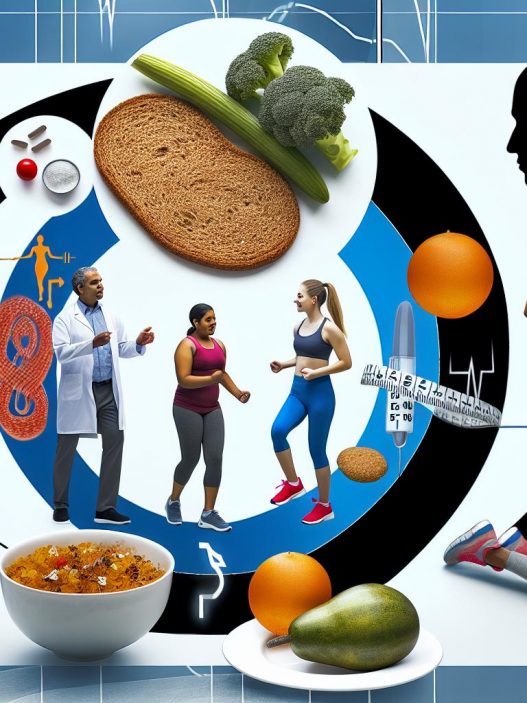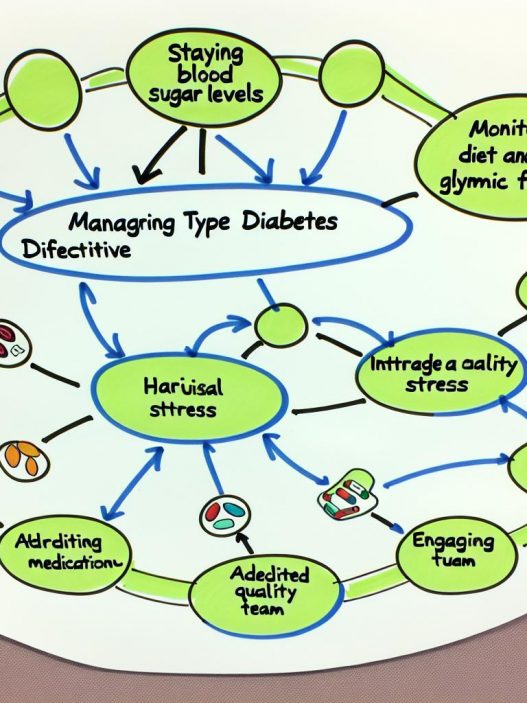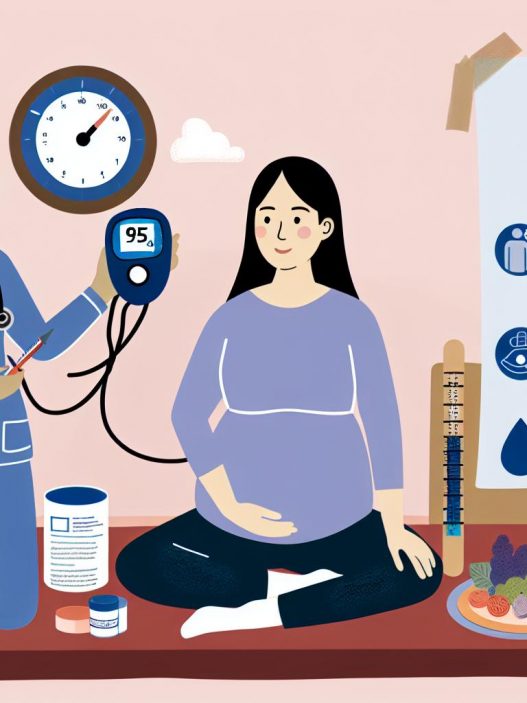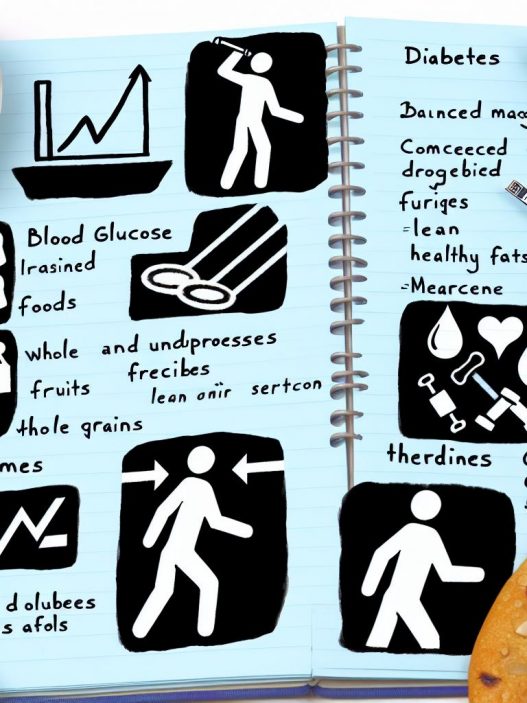**Practical Tips for Managing Type 2 Diabetes Effectively**
Living with Type 2 diabetes can be challenging, but effective management is key to leading a healthy and fulfilling life. By adhering to practical strategies, individuals can better control their blood sugar levels, reduce the risk of complications, and improve overall well-being. In this article, we will provide insightful tips and comprehensive guidance on effectively managing Type 2 diabetes, enabling you to take charge of your health and make informed decisions.
Understanding Type 2 Diabetes and Its Implications
Type 2 diabetes is a chronic condition that affects the way your body metabolizes sugar (glucose), an essential source of fuel for your body. Unlike Type 1 diabetes, where the body fails to produce insulin, in Type 2 diabetes, the body becomes resistant to insulin or does not produce enough insulin. This leads to elevated blood sugar levels, which can cause a myriad of health complications if not properly managed.
One key implication of Type 2 diabetes is its link to obesity and sedentary lifestyles. Many individuals find themselves facing this diagnosis as a result of poor dietary choices and insufficient physical activity. Understanding the root causes and effects of Type 2 diabetes is crucial in developing an effective management strategy. It allows individuals to identify their triggers, whether they are dietary, emotional, or lifestyle-based, and to create a plan to counteract these issues.
Another consideration is the emotional and psychological impact of living with diabetes. Many people experience feelings of frustration, anxiety, or sadness upon receiving a diagnosis. It’s crucial to recognize these feelings and seek support, whether it be through counseling, support groups, or educational resources. Knowledge is empowering, and understanding the specifics of your health condition is the first step towards managing it effectively.
Implementing a Balanced and Healthy Diet
A well-balanced diet is foundational for managing Type 2 diabetes effectively. It’s essential to focus on a variety of nutrient-dense foods that help to maintain stable blood sugar levels. Incorporating whole grains, lean proteins, healthy fats, and a wide range of fruits and vegetables is at the core of a diabetes-friendly diet. By making healthier dietary choices, individuals can improve their glycemic control and support overall health.
Meal planning is a highly effective strategy to manage dietary habits and avoid impulsive eating. By taking the time to plan meals in advance, individuals can ensure they have healthy options readily available. Consider using the plate method: fill half of your plate with non-starchy vegetables, a quarter with lean protein (such as chicken, fish, or legumes), and a quarter with whole grains or starchy vegetables (like quinoa or sweet potatoes). This visual representation helps in balancing the necessary food groups without overdoing any single component.
Portion control is another important element to consider. Understanding serving sizes can prevent overeating and help maintain stable blood sugar levels. Utilizing measuring cups or a food scale can familiarize you with actual portion sizes, helping to mitigate the risk of consuming too many carbohydrates or calories in one sitting. Additionally, keeping track of what you eat in a food diary or using mobile apps can be beneficial for recognizing patterns and making adjustments as needed.
The Importance of Regular Physical Activity
Incorporating regular physical activity into your routine is pivotal for managing Type 2 diabetes effectively. Exercise plays a crucial role in controlling blood sugar levels, promoting weight loss, and enhancing overall health. Physical activity improves insulin sensitivity, allowing the body to use glucose more effectively, which is essential for individuals living with diabetes.
Aim for at least 150 minutes of moderate-intensity aerobic exercise per week, such as brisk walking, cycling, or swimming. In addition to aerobic exercise, incorporating strength training exercises at least two days a week can further enhance muscle mass, which burns more calories and helps improve blood sugar control. This combination of aerobic and strength training can create a robust fitness regimen that greatly benefits your health.
It’s essential to find activities that you enjoy, making it easier to stay committed to a regimen. Whether it’s joining a dance class, hiking, or playing a sport, finding fun ways to engage in physical activity can keep motivation high. Additionally, daily habits like taking the stairs instead of the elevator or walking during your lunch break can contribute to overall activity levels, aiding weight management and improving glycemic control.
Before starting any new exercise program, it’s wise to consult with your healthcare provider. They can offer personalized recommendations based on your health status and provide insights on how to exercise safely while managing your condition.
Monitoring Blood Sugar Levels Regularly
Regular monitoring of blood sugar levels is a vital component of managing Type 2 diabetes. Keeping track of your glucose levels can help identify patterns, inform dietary and lifestyle choices, and guide necessary adjustments to medications if prescribed. This proactive approach empowers individuals to take charge of their health effectively.
Home glucose monitoring devices such as glucometers provide convenient and immediate information regarding blood sugar levels. Familiarize yourself with the recommended ranges for your glucose levels, and work closely with your healthcare team to determine the best monitoring schedule for you. Keeping a log of your readings will help you recognize trends, both positive and negative, assisting in making informed decisions about food, activity, and medication.
It’s also important to understand the significance of A1C tests, which provide an overview of your blood sugar control over the past two to three months. Regular A1C testing can help evaluate the effectiveness of your management strategy and inform necessary changes. Collaborate with your healthcare team to set clear goals for your A1C levels, thereby fostering a focused approach to managing your diabetes.
In addition to glucose monitoring, being aware of other health indicators, such as blood pressure and cholesterol levels, is essential. These factors are intricately linked to diabetes management and provide a more comprehensive view of your overall health. Regular check-ups with your healthcare provider can ensure that all aspects of your condition are monitored effectively.
Adopting a Supportive Lifestyle and Managing Stress
Managing Type 2 diabetes isn’t solely about dietary and physical changes; adopting a supportive lifestyle is equally important. Emotional well-being plays a crucial role in diabetes management. Chronic stress can lead to heightened blood sugar levels as it triggers the release of hormones that can interfere with insulin function. Therefore, finding effective stress management techniques is essential.
Practices such as mindfulness meditation, yoga, or deep breathing exercises can aid in managing stress. These techniques encourage relaxation, reduce anxiety, and promote a sense of control over your health. Even simple practices like taking a relaxing walk, listening to music, or engaging in a hobby can effectively reduce stress levels.
Establishing a strong support system is another crucial aspect of managing diabetes effectively. Connect with friends, family, or support groups who can provide encouragement and share experiences. Knowing you are not alone in your journey can foster resilience and motivation. Many individuals find that joining diabetes management classes or online forums can be beneficial for exchanging information, resources, and emotional support.
Finally, never hesitate to seek professional support. A registered dietitian, diabetes educator, or mental health professional can provide personalized guidance tailored to your unique needs. Their expertise can equip you with the tools necessary to manage both the physical and emotional elements of living with Type 2 diabetes.
In conclusion, managing Type 2 diabetes effectively requires a comprehensive approach that encompasses dietary choices, physical activity, regular monitoring, and emotional well-being. By implementing these practical tips and seeking ongoing support, individuals can take control of their health and significantly improve their quality of life. Remember, you have the power to manage your condition, and each positive choice contributes to a healthier future.













